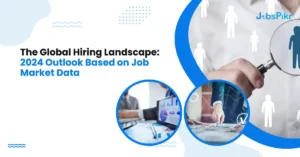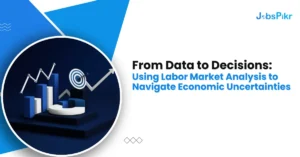A full stack developer is someone who can work on a web application from all perspectives. They are familiar with both the client-side and server-side scripts that make up a web application, and they can work on all aspects of the application. This makes them an essential member of any web development team.
In this blog post, we will explore what skills are required to be a full-stack developer, and we will look at some resources you can use to learn these skills. We will also discuss the benefits of becoming a full stack developer. So if you are interested in learning more about this exciting career path, read on!
What is a Full Stack Web Designer?
A full stack developer is someone who has knowledge about all layers required to build a web application. This includes frontend and backend development. Frontend involves HTML, CSS, JavaScript while the backend is made up of languages like Python, Java, or even C++. A full stack developer should be able to work on the entire application from top to bottom.
The primary reason behind hiring a full stack developer is that they are good at many things instead of just one. They might not be an expert at everything but they sure as hell know how all the pieces fit together to make a whole application.
They should also be able to check and analyze any bugs that pop up and then work on resolving them without having someone with more expertise than them do it. At times, companies hire full stack developers just to save on the cost of hiring more people.
In a nutshell, full stack web designers are responsible for the entire development of an application from top to bottom. They have to be able to handle every aspect of the project and work on it until it’s finished. The main reason why companies hire them is that they can carry out any task by themselves without having to depend on others.
What are the Benefits of a Full Stack Developer?
A full-stack developer is a person who has knowledge and experience in all aspects of software development, from the frontend user interface (UI) to the backend database. Frontend work includes writing markup and styling UI, while backend work can consist of both server and database administration. Here, we will explore some benefits of becoming a full-stack developer.
Code security is an important thing in software development. It’s difficult for backend devs to protect their code, but front-end developers can help with that. As more companies are moving towards “agile” development (in which teams make quick, iterative changes), UI design has become crucial for ensuring the security of the app.
The demand for UI devs has increased, especially after Facebook decided to open-source its frontend framework React.js. This allowed more people to learn React and contribute to it; as a result, many new components were added to make development even easier (and reduce the need for backend developers).
If you’re a full-stack developer, you can design the UI and write all of your own code to protect your application. This means that no matter how much the framework changes in the future, you’ll be able to adapt and update accordingly with ease.
Responsive web applications are highly important in today’s market. Users expect sites to work on smartphones, tablets, laptops, and desktops. As a full-stack developer, you can code both the frontend and backend to ensure that your app’s UI works on every device.
Top Java Full Stack Developer Key Skills
A full-stack developer is a jack of all trades and can work on any part of programming. But if we had to pick the java full stack developer key skills in 2022, here is a list of top skills.
- Object Oriented Programming Understanding
Object-oriented programming (OOP) uses classes, encapsulation, inheritance, polymorphism, and abstraction. It’s important that a Java developer has full command over the OOPS concept.
- Database Concepts
The database is an important part of any web app and it’s good that a Java developer understands relational databases, non-relational databases, SQL, NoSQL concepts, etc. He/she should ideally have worked with at least one database before starting work as a full-stack developer.
- Software Architecture
A Java developer must have knowledge about different software architecture, their purpose, and how they are used in web development projects. They should know the difference between monolithic, layered, service-oriented architecture, etc.
- Languages & Frameworks
Apart from Java, a good java full stack developer should have exposure to other technologies and frameworks such as Spring, Hibernate, etc. He/she should be able to quickly pick up any framework or language that is required for the project he/she is working on.
- Web Development
Any java full stack developer should know how a web page works and what goes behind a webpage request.
- Networking
As a java developer, he/she must have exposure to networking at different levels such as protocol level, socket level, and application level. Though exposure is not necessary for writing code, it may get helpful when debugging issues related to networking.
- Version Control System
A good java full stack developer must know how to use Git, Subversion, etc. He needs to understand the basics of branching and merging with these tools.
- UI Development
GUI is an important part of any app and java full stack developers should know about HTML, CSS, JQuery, etc. A good java full stack developer should be able to create large and complex UIs with ease.
- Communication Skills
Any java full stack developer should be good at writing and giving presentations to his/her team members and clients. He/she should also understand the basics of UI design (HTML, CSS, JQuery, etc.)
- Build Tools
A Java developer must be familiar with build tools such as Maven and Gradle. He/she has to understand the concepts of dependency management and adding the necessary libraries for a project. A good java full stack developer must know how to use these build tools.
Conclusion
As the world moves towards more digital and automated interactions, the need for skilled Java full stack developers will continue to grow. Those who are able to obtain the appropriate skills and stay up-to-date on new trends and technologies will be in high demand. Do you have what it takes?
If you’re interested in learning more about becoming a Java full stack developer, don’t hesitate to reach out.




